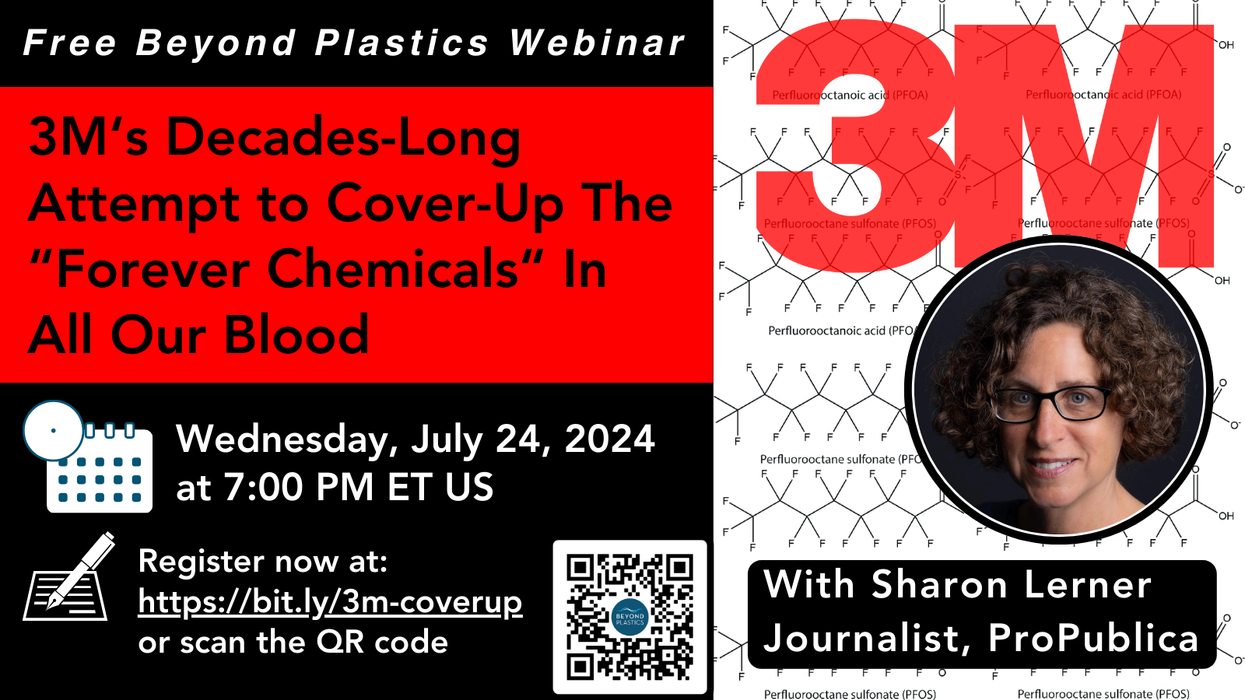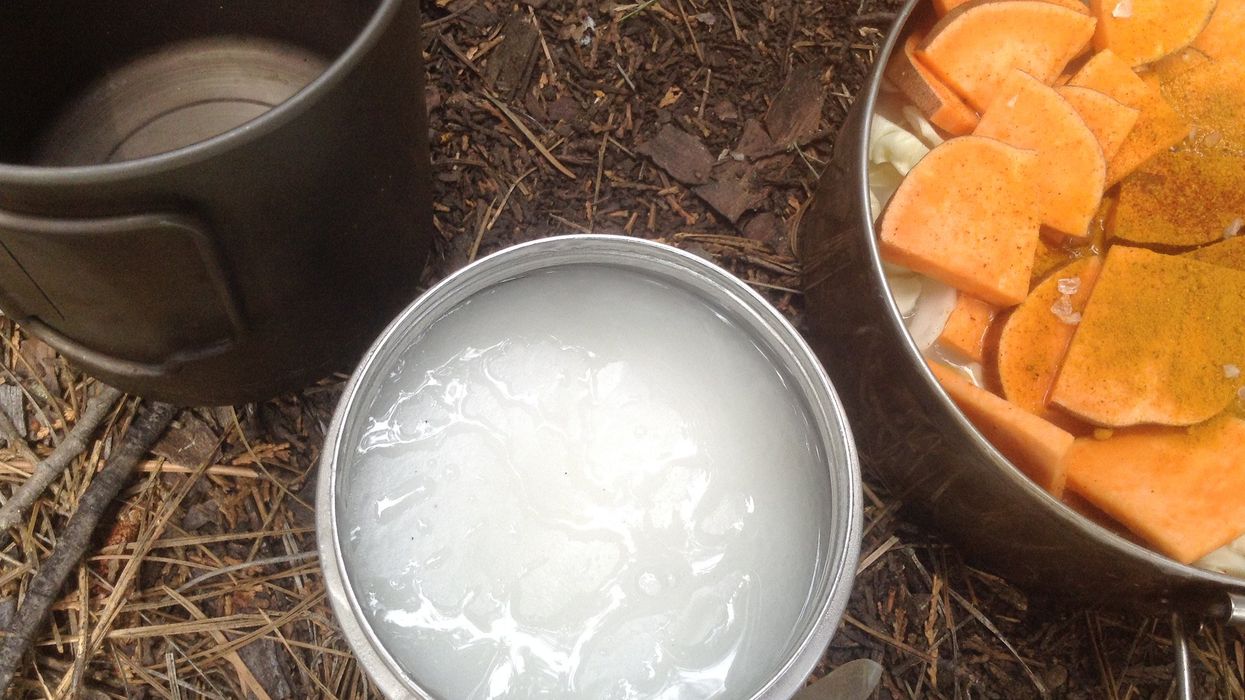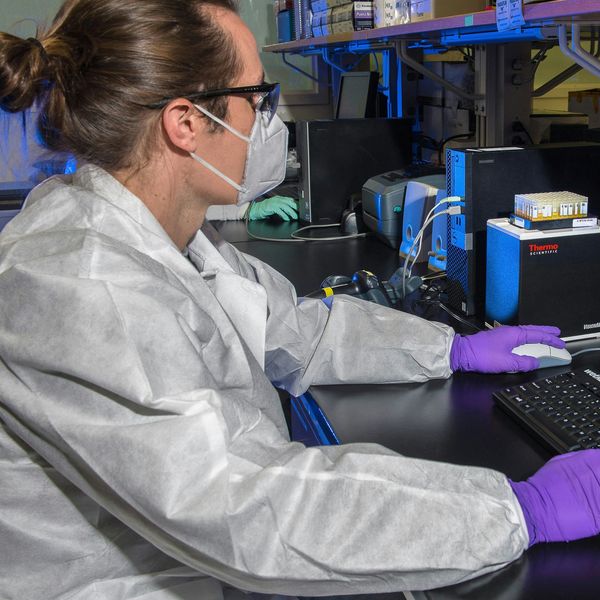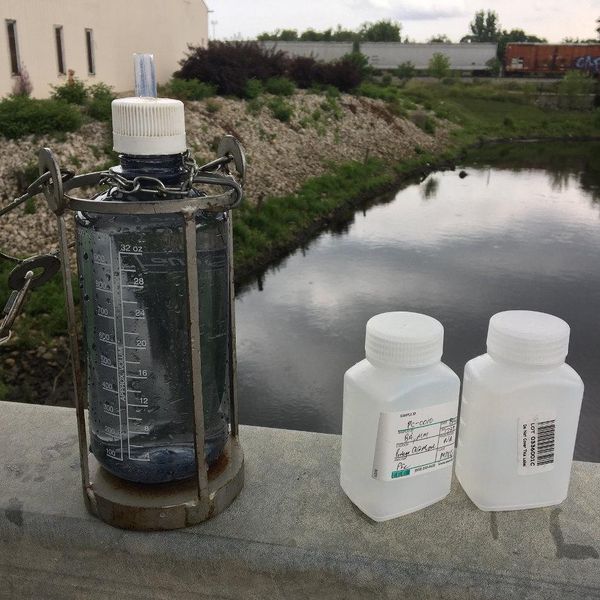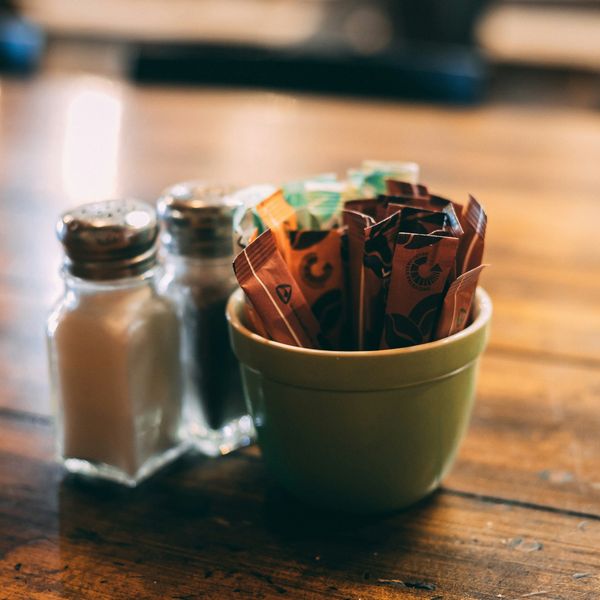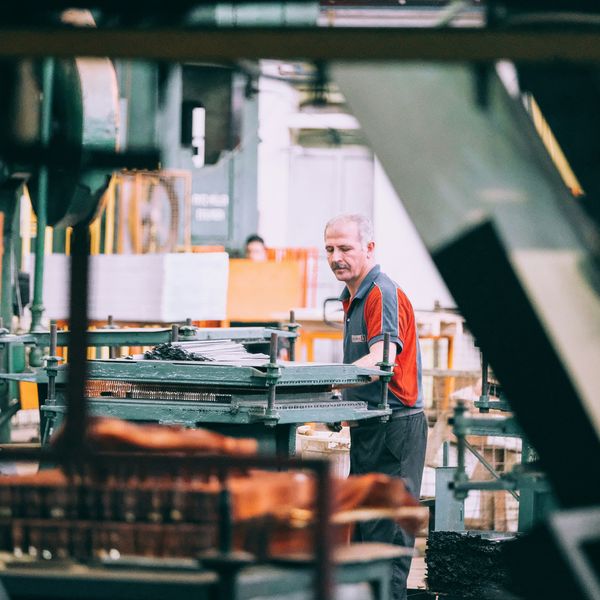A wide-ranging, ongoing investigation of PFAS in everyday products has uncovered evidence of the toxics in our clothes, food, and makeup—including in many so-called “green” and “organic” brands.
While many are aware of PFAS pollution in water, the testing finds that we’re also exposed by the things we wear or eat. The testing highlights the dangerous unknowns in many U.S. supply chains, as many brands are not intentionally adding PFAS, short for per- and polyfluoroalkyl substances, which contribute to cancer, reproductive and immune systems damages, elevated cholesterol, and other health issues.
The collaboration between EHN.org and wellness community Mamavation looked for fluorine, an indicator of PFAS, and found contamination in products from popular brands like Lululemon, Old Navy, and Burt’s Bees.
It’s not all bad news: many products tested clean. In our guide below you can quickly find PFAS-free products and those that were contaminated. We’ve also armed manufacturers with this information so they can clean up their production from these insidious, harmful chemicals.
Over the next few months we will report on this testing, and give readers the tools to make more informed decisions about products they buy.
Here are the stories:
Unintentional PFAS in products: A “jungle” of contamination
PFAS cosmetics studies are “springboard” for litigation
PFAS in personal care products and makeup
Want single-use foodware without harmful chemicals? A new certification will help you find it
“Green” children's products not always PFAS-free, warns new study
Workers exposed to PFAS in a variety of industries
What we know about PFAS in our food
PFAS: Hard to escape in food, clothes, and makeup
WATCH: PFAS "forever chemicals" on our shelves and in our bodies
What we've found
- In athletic clothing—such as leggings and sports bras— evidence of PFAS contamination, including in brands that had vowed to stop intentionally adding these compounds to their products. And period underwear had high fluorine levels even for companies that have claimed their products were PFAS-free.
- In food—such as spaghetti sauce, peanut butter, and baby food—evidence of PFAS contamination, even in organic and natural brands.
- In personal care products, evidence of PFAS contamination in “PFAS-free” green beauty brands and retailers, highlighting the uphill battle for small manufacturers trying to do the right thing and the need for transparency in supply chains.
What needs to happen
- We are notifying and working with companies to help identify where this pollution is coming from and how it can end.
- We are reaching out to policymakers interested in consumer product safety to alert them to unknown PFAS contamination.
- Share these stories with your friends and family to find products free from harmful chemicals.
- Learn about PFAS dangers and how to avoid them with our helpful guide: What are PFAS?
- Follow the conversation on Twitter at #StopPFAS.
- Have a product or brand you'd like to see tested? Contact us at feedback@ehn.org
Read the stories
This is an ongoing story. There is more testing in the works and we will continue to investigate PFAS in products.
Below are stories we've published, and we will update this page as more testing is complete.
First-of-its kind testing points to dangers and unknowns of PFAS in clothing

Experts and advocates say the new testing points to the need for more rigorous regulation.
Unintentional PFAS in products: A “jungle” of contamination

From manufacturing to packaging, PFAS are getting into cosmetics, clothes, and food even when companies are not intentionally adding the chemicals.
PFAS cosmetics studies are “springboard” for litigation

Law firm warns companies of a quickly changing landscape that has triggered lawsuits over the “forever chemicals.”
IN-DEPTH: For clean beauty brands, getting PFAS out of makeup might be easier said than done

“Even the most well-intentioned brands could experience PFAS problems.”
Want single-use foodware without harmful chemicals? A new certification will help you find it

GreenScreen certification examines foodware for PFAS, BPA, and thousands of other concerning chemicals — but transparency on chemical replacements remains elusive.
“Green” children's products not always PFAS-free, warns new study

Though many consumer products for children are marketed as “green” or “nontoxic,” some still contain toxic chemicals.
Workers exposed to PFAS in a variety of industries

From construction to skiing, PFAS are an important, but understudied, source of on-the-job chemical exposure.
IN-DEPTH: What we know about PFAS in our food

Amid inadequate testing and a lack of regulation, we’re all eating “forever chemicals.”
PFAS "forever chemicals" on our shelves and in our bodies: A conversation
EHN.org and the website Mamavation.com have been testing PFAS in everyday products, and findings suggest these troublesome chemicals are on our shelves and in our bodies.
PFAS: Hard to escape in food, clothes, and makeup

A multi-part investigation found PFAS contamination ubiquitous in consumer products. Here's what you can do about it.
See more PFAS testing results
Check out Mamavation's Product Investigation page for more PFAS testing, including:
Banner photo credit (left to right): Brian Brodeur/flickr; Nathan Rupert/flickr; Carlos Martinez/Unsplash
- PFAS widespread in water- and stain-resistant outdoor clothes ... ›
- Investigation finds evidence of PFAS in workout and yoga pants - EHN ›
- States will weigh more than 210 bills on toxic “forever chemicals” in ... ›
- CoverGirl Sued For PFAS contamination - EHN ›
- Evidence of PFAS chemicals in sports bras - EHN ›
- PFAS chemicals—the other immune system threat - EHN ›
- LISTEN: Theresa Guillette on what gators and crocodiles can tell us about our health - EHN ›
- PFAS cosmetics studies are “springboard” for litigation - EHN ›
- IN-DEPTH: For clean beauty brands, getting PFAS out of makeup might be easier said than done - EHN ›
- Starbucks will eliminate all PFAS in its packaging - EHN ›
- Evidence of PFAS in organic pasta sauces - EHN ›
- “Green” children's products not always PFAS-free, warns new study - EHN ›
- Workers exposed to PFAS in a variety of industries - EHN ›
- PFAS: Hard to escape in food, clothes, and makeup - EHN ›
- Evidence of PFAS in toilet paper. (Yes, toilet paper!) - EHN ›
- Evidence of PFAS in toilet paper. (Yes, toilet paper!) - EHN ›
- Where did the PFAS in your blood come from? These computer models offer clues - EHN ›
- Evidence of PFAS in sanitary and incontinence pads - EHN ›
- Arming doctors with knowledge about PFAS pollution - EHN ›
- EHN partner featured in Consumer Reports' citizen science feature - EHN ›
- Evironmental Health News and Mamavation PFAS investigation featured in TIME - EHN ›
- Not only are PFAS toxic — they’re bad at their job when applied to furniture - EHN ›
- Are you putting PFAS on your eyeballs? - EHN ›
- Testing find glyphosate in two popular oat milks - EHN ›
- Are you replenishing your electrolytes with a dose of PFAS? - EHN ›
- PFAS are leaving a chemical fingerprint in pine needles - EHN ›















